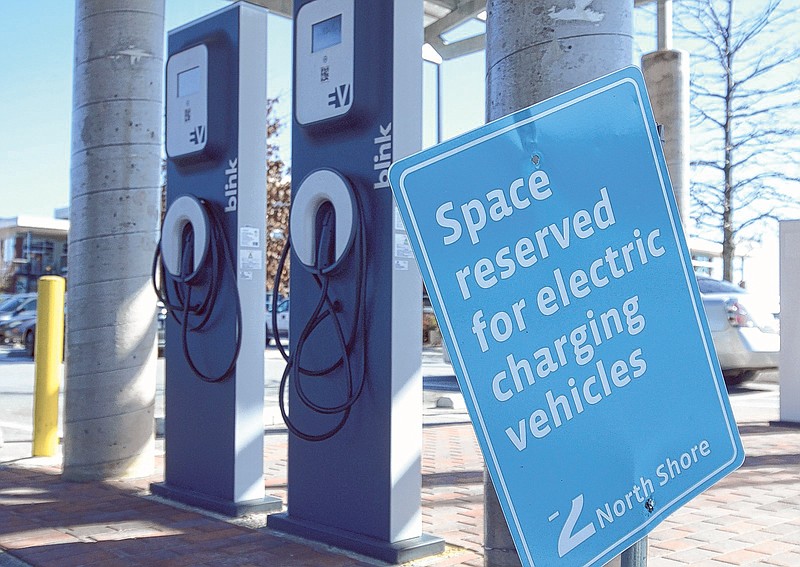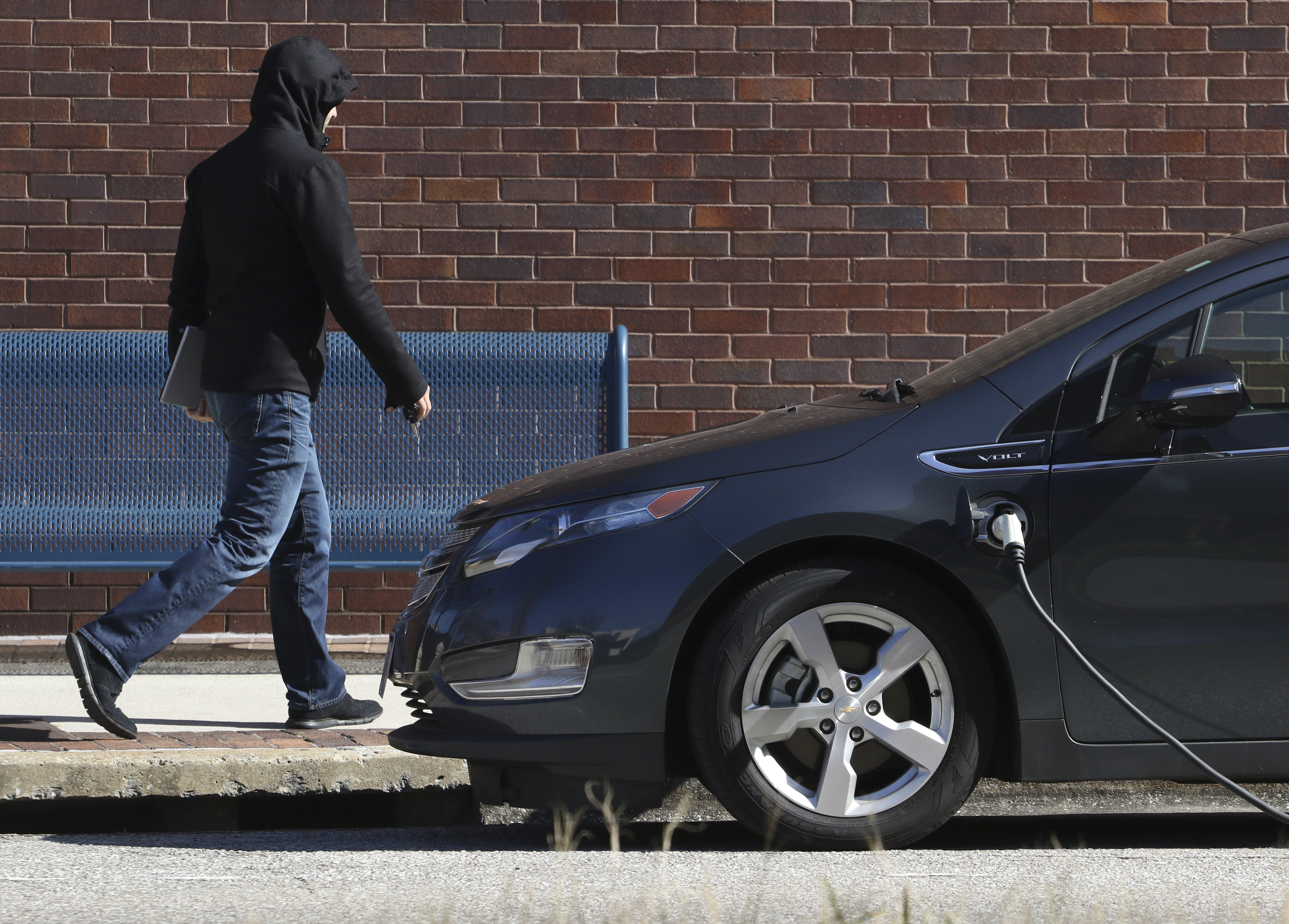U.S. electric vehicle sales in January
Model // number sold // change from December Leaf // 1,070 // down 65.5 percent i3 // 670 // down 33.9 percent Volt // 542 // down 63.6 percent B-Class // 240 // down 26.4 percent ELR // 92 // down 22 percent MiEV // 3 // down 75 percent Total // 2,617 // down 56.8 percent Source: Kelley Blue Book U.S. hybrid/alternative car sales in January Model // number sold // change from December Prius 12,244 // down 15.1 percent C-Max // 1,160 // down 40.9 percent CT // 1,005 // down 37.5 percent Insight // 23 // down 28.3 percent CR-Z // 196 // down 12.5 percent Total // 14,828 // down 19.9 percent Source: Kelley Blue Book 2014 U.S. electric/hybrid vehicle sales Segment, number sold, change from 2013 * Electric vehicle: 57,379, up 22.8 percent * Hybrid/alternative car: 260,169, down 11.5 percent Source: Kelley Blue Book
Jonathan Overly of the nonprofit East Tennessee Clean Fuels Coalition calls American auto buyers "notoriously fickle."
"We make decisions on something we're going to keep 10 years after fuel prices drop two months," he said last week as motorists buy more sport utility vehicles and pickup trucks.
Month over month sales of electric vehicles have plunged in the wake of the steep drop in gasoline prices at the pump, figures show. What will be interesting, experts said, is if the sale of electric and hybrid-electric cars will bounce back.
In January, electric vehicle sales fell 56.8 percent from December, Kelly Blue Book (KBB) figures show. Hybrid sales dropped nearly 20 percent.
"(The drop in gas prices) has increased momentum away from electrics and hybrids," said Karl Brauer, senior director of insights and senior editor for KBB.
The past few months took the luster off what was an up year for electric vehicles as sales jumped 22.8 percent for all of 2014. Hybrids, however, sustained a 11.2 percent drop for the year, according to KBB.
Brauer said three new electric vehicle models helped bolster sales in 2014. Nissan, with its industry leading and Tennessee-made Leaf, offered some compelling features which helped keep its sales moving, he said. Leaf sales climbed 33.6 percent in the year.
At the same time, however, the Chevrolet Volt's sales fell 18.6 percent in 2014.
Brauer said electric and hybrid vehicles are facing headwinds in addition to lower gas prices. Traditional cars are much more fuel efficient than in the past, he said.
A decade ago, while the Toyota Prius got 50 mpg, a typical gasoline powered car might get only 20 to 25 mpg. Today, while Prius gets much the same mileage, gas vehicles have significantly improved their mileage, according to Brauer.
He noted that 30 mpg is typical for a number of small sport utility vehicles, for example.
Danny McVay, general manager of Nissan of Chattanooga East, said he thinks electric vehicles will bounce back when fuel prices increase.
"Anytime gas prices drop or escalate, it affects the types of vehicles people purchase," he said. "When the price of gas is more affordable, people buy SUVs and trucks. When they don't get that good mileage and gas goes back up, they trade."
McVay said he thinks electric vehicles are "here to stay."
Auto manufacturers have invested a lot of money in the segment, and they're not giving up on it, he said.
The Obama administration has implemented new vehicle fuel-efficiency standards requiring the U.S. auto fleet to average 54.5 miles per gallon by 2025. The new rules expanded on existing standards requiring American-made cars and light trucks to average 34.5 mpg by 2016. Electric and hybrid vehicles help automakers meet requirements.
Volkswagen and BMW last month announced plans to install 100 high-speed charging stations on busy corridors on the East and West coasts to help expand the market for their own electric vehicle and hybrid offerings.
One factor that will impact sales will be improved vehicle mileage between rechargings, McVay said. Now, some people have concerns about the limited range they can drive electrics before recharging, he said.
"Somebody doesn't need to buy a Leaf if they're driving 200 miles one way every day," the general manager said.
Overly, who heads the nonprofit group housed at the University of Tennessee, agreed that so-called range anxiety is an issue. He termed it "range reality."
Overly, who drives a Leaf, called it "a city car" or a vehicle for a family with two cars. Nissan claims 100 miles before a charge, but the Environmental Protection Agency said it gets more like 72 miles, he said.
Overly said estimates show there are about 3,000 electric vehicles registered in Tennessee.
He called for more direct current fast charging stations to help boost sales of the vehicles.
Earlier this decade, San Francisco-based ECOtality launched an effort to install thousands of chargers in Tennessee homes, businesses and municipalities. It was part of a $230 million, five-state electric vehicle project by the U.S. Department of Energy. More than 30 were slated for Hamilton County.
However, ECOtality later filed for bankruptcy and another company, CarCharging Inc., purchased its assets.
Brauer said that at the Detroit auto show in January, he saw General Motors' concept of its Chevrolet Bolt. GM claims the electric Bolt will get 200 miles between charges, which the KBB official called "real world range."
"It would be a paradigm shift for electric cars," Brauer said. "It would eliminate range anxiety."
Overly also said that some people want an electric or hybrid vehicle for "greener reasons."
"Sure, they like the fuel cost savings. For the most part, the primary reason is they want to do something better for the planet and the people around them," he said.
Paul Rice, who coordinates the West Tennessee Clean Fuels Coalition, put it this way: "EV people -- they love their cars."
Contact Mike Pare at mpare@timesfreepress.com or 423-757-6318.

